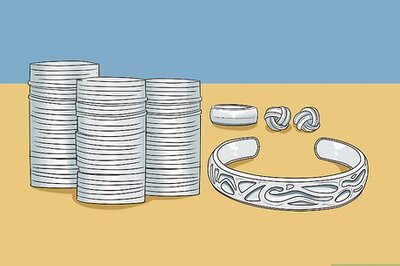
views

Try practicing about an hour a day, or half an hour if you have a busy schedule or can't find time.

Do extra practice whenever you have more time. For example, on weekends you could do more than an hour, like two or three, or even more. This is very helpful because it pulls you out of the routine of piano playing, and lets you practice more and perfect the pieces you play.

Listen to the song or piano piece you are playing. For example, if you are taking piano lessons and are about to play a new piece, you could try searching on the internet for videos or songs and hear how it sounds. This can be very helpful because it teaches you how a song is played and lets you recognize the 'emotion,' the piece is giving off.

Try not to look at the dynamics in a piece, as rules you cannot break. For example, if the piece starts with an 'mp' (mezzo-piano) it only means 'moderately soft' these dynamics don't have specific volume levels. If you are practicing, you don't need to play accordingly and then have a difficulty hearing yourself, you should only play as it tells you when you are actually trying to play it properly.

Practice sight-reading and don't worry about making mistakes. This can be very helpful, because it's almost like scanning a paragraph and looking at the picture. It helps you to understand what the passage is trying to convey before you actually read it and lets you know what comes next. This is the same with music, and it can help you stop making mistakes.

Pay close attention to your mistakes. Don't look at them as a burden, but instead as a pat on the arm informing you of avoiding that the next time.

Count as you play during practice according to the time signature. For example, if the time signature is 3/4, then count the notes in each bar as you play. This can be helpful because it helps you judge how quickly or slowly a note should be played, but you don't need to count in the piece after you have played it well.

Play in front of friends and family. This can be challenging at first, as some people are shy or lack confidence. But this helps with your playing, and you will become more confident about playing in front of people.

Ask someone to play the piece you are practicing for you. For example, a much more advanced pianist or a piano teacher can be a lot of help. When they play something, it makes you understand how the piece should be played, therefore helping you play it better.

Concentrate on playing the piece properly. Many people feel that they are excellent when they're playing the piano alone but not nearly as good when playing in front of others. Try not to play too fast or too slow to impress people, even if no one's there. Maintaining a more comfortable tempo helps you concentrate on not making mistakes. When you have become comfortable with the piece at that tempo, you can speed up or slow down depending on the piece.




















Comments
0 comment